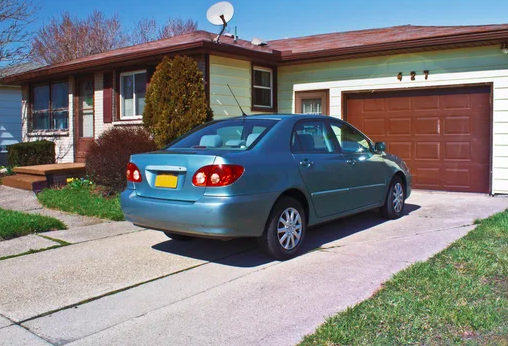The Dangers of an Uneven Driveway: Protecting Your Vehicle for the Long Haul
Imagine getting ready for a drive, only to find that your driveway is bumpy and uneven. It might not seem like a big deal, but having an unlevel driveway can actually cause serious problems for your vehicle, both in the short and long term. In this article, we'll explain why it's important to take care of your uneven driveway right away to keep your car safe and avoid expensive issues.
Short-Term Effects: A Bumpy Ride
Suspension Damage: Driving over a bumpy driveway puts a lot of stress on your car's suspension system. This system is responsible for absorbing the impact of rough roads, but an uneven driveway can strain it too much. This can lead to early wear and tear, making your ride uncomfortable and bumpy.
Misaligned Wheels: An unlevel driveway can throw off your wheels' alignment. When your tires repeatedly hit uneven surfaces, it can cause uneven tire wear, reduce fuel efficiency, and affect how well your car handles. You might notice that your car pulls to one side or shakes while driving, which means you'll need an expensive realignment service.
Scraping and Bottoming Out: If your driveway has steep slopes or sudden drops, your car's undercarriage can scrape against the ground or hit it hard. This can damage important parts like the exhaust system, oil pan, or transmission. Repairing these parts can cost a lot of money and disrupt your daily driving or travel plans.
Long-Term Effects: Wear and Tear
Structural Damage: An unlevel driveway puts extra strain on your car's frame and body. Over time, this stress can lead to damage, making your car less sturdy and safe. Constant exposure to uneven surfaces can cause misalignments, cracks, or even fractures in the main structure of your car, which can be expensive to fix.
Suspension System Failure: The prolonged stress on your car's suspension system due to an unlevel driveway can eventually cause parts to fail. Shocks, struts, and springs may wear out faster, affecting your car's stability, handling, and overall safety. Replacing these parts can be costly, and it's crucial for keeping your driving experience safe and comfortable.
Drivetrain and Transmission Issues: An uneven driveway can also affect your car's drivetrain and transmission. The extra strain on these systems can cause them to wear out sooner, develop leaks, and perform poorly. Fixing or replacing them can be expensive, so it's important to address any leveling issues with your driveway to protect these important parts.
Taking Action: Fixing the Problem
Consult with Professionals: That’s us! If you notice that your driveway is uneven, it's a good idea to talk to driveway specialists or contractors. We can assess the situation, recommend solutions, and give you estimates for repairs or leveling work!
Resurfacing or Repairs: Depending on the severity of the unevenness, resurfacing or targeted repairs might be enough to level your driveway. Filling cracks, patching potholes, or adjusting slope gradients can help restore a smooth and safe surface.
Consider Reconstruction: In more severe cases where your driveway is extensively uneven or beyond repair, reconstruction may be necessary. This involves removing the existing driveway and installing a new one with proper leveling techniques and materials. While it requires an investment, it ensures a long-lasting and well-maintained surface for your vehicle.
An unlevel driveway can have serious consequences for your vehicle. The short-term effects, like suspension damage and misaligned wheels, can lead to long-term wear and tear, expensive repairs, and compromised safety. It's important to address any unevenness in your



